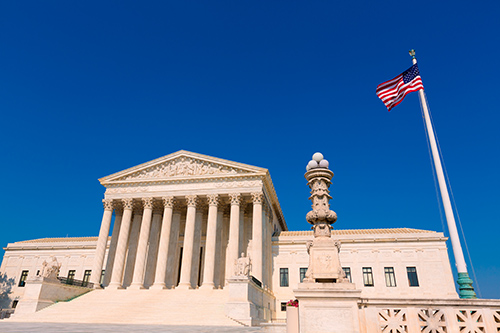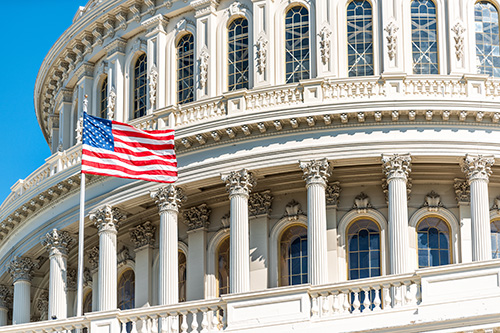Public Should Have Voice in Picking Next Supreme Court Justice
Supreme Court Justice Antonin Scalia was a giant of American jurisprudence. His intellect, wit, and commitment to the rule of law inspired a generation of legal minds -- including me -- to follow the law as written and to uphold the Constitution for the health of our democracy. Scalia resuscitated our nation's constitutional principles during a crucial time.
With his passing, the Constitution is unambiguous about what happens next. President Barack Obama has exercised his authority to nominate someone to fill the vacancy, but the Senate has an equal authority to determine whether to proceed with that nomination. I believe the American people deserve to have a voice in the selection of the next Supreme Court Justice, and the best way to ensure that happens is to have the Senate consider a nomination made by the next President.
Confirming a new Supreme Court Justice during a presidential election year for a vacancy arising that same year is not common in our nation's history; the last time it happened was in 1932. And it has been almost 130 years since a presidential election year nominee was confirmed for a vacancy arising the same year under divided government as we have today.
In 1992, while serving as chairman of the Senate Judiciary Committee and with a Republican in the White House, Vice President Joe Biden said his committee should "seriously consider not scheduling confirmation hearings" on any potential nominees until the campaign season was over.
And, in 2005, when a Republican was in the White House, the current Senate minority leader explained that "nowhere in [the Constitution] does it say the Senate has a duty to give presidential appointees a vote."
Of course, political double standards extend beyond the Supreme Court. Many will recall the blockade of Miguel Estrada, President George W. Bush's nominee to fill a seat on the U.S. Court of Appeals in 2003. Estrada ultimately withdrew his name from consideration after waiting more than two years. And in 2013, when the political tide was in their favor, Democrats broke Senate rules to load up the Court of Appeals for the District of Columbia, often referred to as the second most powerful court in the country.
The American people made clear that they wanted a check on the Obama administration when they put Republicans in charge of the Senate in November 2014. Now, we have an obligation -- and full constitutional authority -- to use that mandate from the people for issues that matter most to this country. And that includes the direction of the Supreme Court.
There is a lot at stake here. Depending on who ultimately fills this vacancy, the next Supreme Court justice could change the ideological direction of the court for a generation -- and fundamentally reshape American society in the process. As we know from his previous nominees, a court selected by President Obama could impose its views on the people, regardless of the democratic process. The question now before the American people is whether they want to dramatically change the current ideological makeup of the court.
Scalia was committed to the separation of powers, which he understood to be the most important shield against tyranny. With his voice, the highest court in our country was a ready and able check against both legislative and executive overreach.
The direction of the court is now in question, and the Senate has an essential role to play. At this critical junction in our history, the American people should have the opportunity for their voice to be heard. Senate Republicans are committed to making sure that they do.








